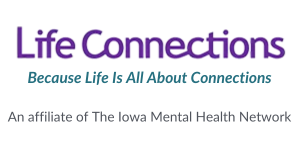In part 1 of this blog series, we identified the term Cognitive Distortions, and created awareness around the adolescent brain being more susceptible to cognitive thinking errors due to not being fully developed. As a result, adolescents are susceptible to limited capacity to process complex information, decision-making, and social behaviors. In today’s blog series we will explore the following cognitive distortions: catastrophizing, minimization, magnification, & overgeneralization.
Catastrophizing
Catastrophizing is the expectation of disaster in any given situation. The experience of catastrophizing creates a narrative that the worst case scenario will occur and be awful and unbearable. Through catastrophizing, there is the belief that one experience will impact your life and how you live it, your future experiences, and opportunities.
Example:
“It would be terrible if I failed.”
“If I get a bad grade then I will never get into a good college.”
“If I don’t get into college I won’t be successful or make anything of myself.”
Overgeneralizing
Overgeneralizing is concluding that your capability, opportunity, or outcome is based on a single incident or experience. The concept of overgeneralization is rooted in the anticipation that if something bad occurs once then it will continue to happen without opportunity for changed or differing experiences. Overgeneralized statements often incorporate “always” or “never,” into the statement.
Example:
“I fail all the time.”
“I never get to do anything fun.”
Minimization
Minimization occurs when one is discrediting or dismissing their own experiences or life events as unimportant or miniscule. Minimization can create an inability to accept positive feedback or recognize the significance of a correctable mistake.
Example:
Not recognizing the significance of being elected into the National Honor Society.
Getting straight A’s in coursework, but not being able to accept a compliment from parents for GPA.
Getting in trouble for skipping classes and receiving a failing grade, but dismissed as “no big deal.”
Magnification
Magnification is the observation of small events or mistakes as excessively important and life changing.
Example: Missing 1 question on an exam and thinking that it is representative of a failing mark.
Written By: Bridget Kleitsch
MS, tLMHC Assistant Clinical Director, Therapy Manager, Licensed Mental Health Therapist
Because Life is All About Connections
Life Connections provides in-home Behavioral Health Intervention services, Therapy services, autism (ABA) services and Children’s Mental Health waiver services in our 13 office locations and approved schools across Iowa. Life Connections was founded in March of 2009 with the intent to serve the children and families of Cedar Rapids and surrounding cities.
Life Connections is a highly professional and caring counseling and behavioral health provider. We offer a wide array of services to treat mental health issues including Applied Behavior Analysis Services, anxiety treatment, Behavioral Health Intervention Services, Family and Community Support (FCS) Providers, depression treatment, family therapy, marriage and couples counseling, mental health therapy, school-based therapy programs, and Tele-Mental Health.
For more information, please call 319-409-6922.
Resources:
- National Suicide Prevention Hotline 800-273-8255
- Crisis Text line text to 741741
- The Trevor Project – for LGBTQ+ young adult community 866-488-7386
- Rape, Abuse, and Incest National Network 800-656-4673
Start Your Services
Start Mental & Behavioral Health Services with Life Connections | Because life is all about connections.

